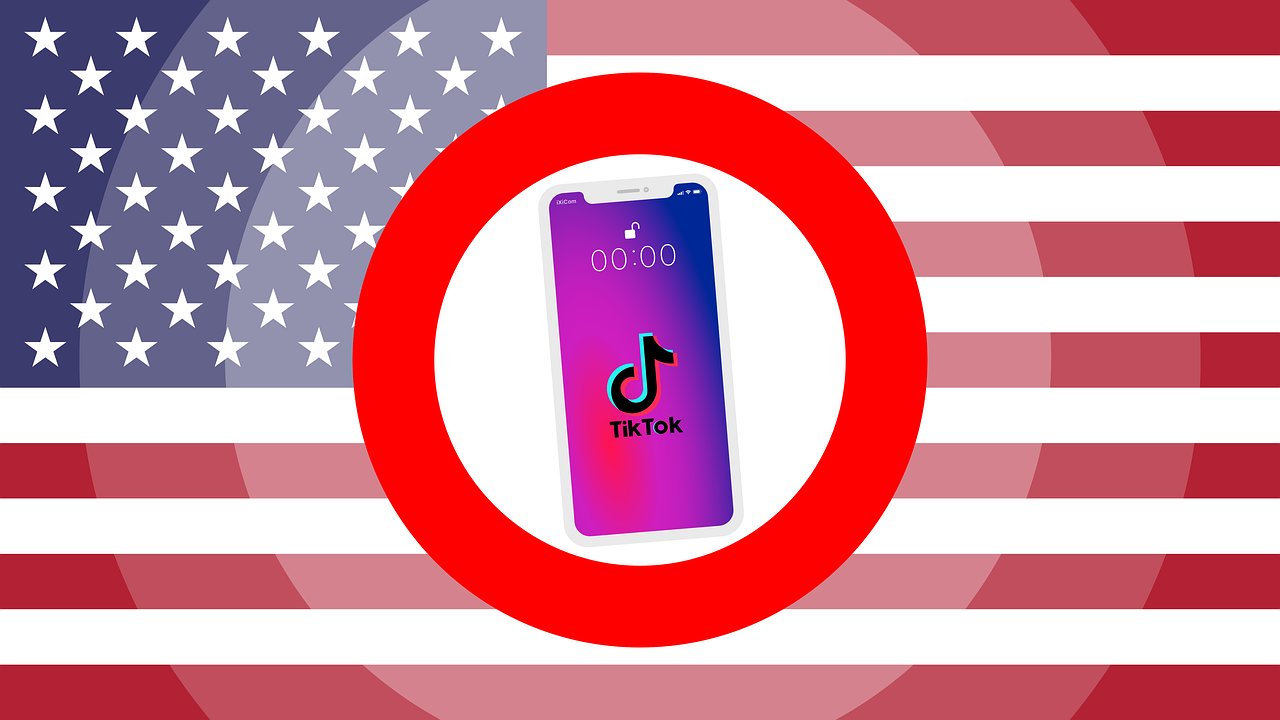
Introduction to the Controversy
The recent controversy surrounding Walmart’s subsidiary in Mexico has garnered significant attention, highlighting allegations of monopolistic practices that have raised concerns within both the retail industry and the broader economic landscape. The fine of $4.6 million, imposed by Mexican authorities, is a substantial consequence stemming from these allegations, underscoring the potential implications for the business operations of Walmart in the region.
At the heart of the allegations is the accusation that the subsidiary has engaged in practices limiting competition, thereby acquiring an unjust advantage in the marketplace. Critics argue that such monopolistic behavior undermines fair competition, stifles innovation, and ultimately harms consumers by reducing choices. These concerns are particularly pertinent in a market where a few large retailers dominate and can dictate prices, making it crucial for regulatory bodies to ensure an equitable playing field. The implications of such allegations extend beyond the immediate financial penalty; they could influence future operations and regulatory scrutiny of Walmart’s business strategies in Mexico.
The Mexican government’s actions reflect a broader trend wherein regulations targeting monopolistic practices are being implemented globally. In recent years, many nations have intensified their scrutiny of large corporations to ensure fair competition, prevent abuse of market power, and protect consumer interests. As Walmart’s subsidiary prepares to appeal this fine, the outcome of this case could set significant precedents for similar entities operating within the region. This situation not only affects Walmart but also raises questions about the overall integrity of the retail market in Mexico, prompting discussions about the necessary balance between corporate growth and regulatory oversight.
Background on Walmart’s Operations in Mexico
Walmart entered the Mexican market in 1991 through the acquisition of a local retailer, Cifra. This strategic move allowed Walmart to quickly establish a foothold in a country with a burgeoning middle class and increasing consumer spending. Since then, Walmart de México y Centroamérica, as the subsidiary is known, has expanded its operations significantly, becoming a leader in the retail segment. Today, Walmart operates thousands of outlets across Mexico, ranging from Supercenters to smaller neighborhood stores, adapting its business model to suit the local market’s unique characteristics.
The competitive environment in Mexico has evolved as a result of Walmart’s entrance and expansion. Other retailers have had to adapt to Walmart’s low-cost business model and vast selection of products, driving competition to provide better services and pricing. This has further transformed the retail landscape, with Walmart becoming a key player not just in hypermarkets but also in e-commerce and grocery delivery services. Such diversification has reinforced Walmart’s dominance in the region.
Moreover, Walmart’s presence has had broader economic implications for Mexico. The company has been pivotal in creating jobs, offering employment opportunities to thousands of individuals. The local supply chain has also benefited from Walmart’s scale, as the company has committed to sourcing products from Mexican suppliers, contributing to the country’s economic development. Nevertheless, the rapid growth and significant market share have raised concerns about monopolistic practices, which have led to scrutiny from regulatory authorities. This context is essential in understanding the current challenges facing Walmart in Mexico, including the $4.6 million fine related to its alleged monopolistic behavior.
Details of the Allegations
The allegations against Walmart’s Mexican subsidiary, known as Walmex, encompass claims of engaging in monopolistic practices that have raised significant concerns within both consumer and regulatory circles. The fine of $4.6 million was imposed following an investigation into market behaviors deemed anti-competitive. The investigation sought to determine whether Walmex had engaged in practices that stifled competition and limited consumer choice across various retail sectors.
Central to these allegations is the assertion that Walmex utilized its substantial market power to establish barriers that hinder smaller competitors and local retailers. Specific practices under scrutiny include predatory pricing strategies, where Walmex allegedly offered products at prices below cost to drive competitors out of business. Additionally, the complaints highlighted exclusive agreements with suppliers, which purportedly restricted access to essential goods for rival retailers, further consolidating Walmex’s dominance.
The legal framework guiding this investigation is rooted in Mexico’s antitrust laws, particularly those enforced by the Federal Economic Competition Commission (COFECE). This regulatory body is tasked with maintaining free market competition and ensuring that consumer interests are protected. In prior rulings, COFECE has outlined that actions which lead to a significant reduction in competition may violate these laws, warranting scrutiny and potential penalties.
Events leading up to the fine involved a comprehensive review of Walmex’s pricing strategies and market behaviors over several years. The investigation was prompted by complaints from competing retailers who argued that the company’s aggressive strategies were systematically undermining their operations. As the situation unfolds, Walmex has expressed its intent to appeal the fine, arguing that its business practices comply with applicable legal standards and promote consumer welfare. This case underscores the complexities and significant implications tied to large corporations’ market conduct in Mexico’s evolving retail environment.
The Fine and Its Implications
Walmart’s Mexican subsidiary has recently been subjected to a significant fine amounting to $4.6 million, a decision reached by regulatory authorities in response to allegations of monopolistic practices. This fine was determined after a thorough investigation that scrutinized the subsidiary’s pricing strategies, market conduct, and competitive practices within the country’s retail sector. The involvement of the Federal Economic Competition Commission (Cofece) indicates a notable push by Mexican regulators to curb monopolistic behaviors that may harm competition and consumer choices in the marketplace.
This financial penalty bears considerable significance within the landscape of corporate fines in Mexico. Historically, such fines have been relatively common in addressing anti-competitive behaviors; however, the scale and visibility of this case highlight an increasing trend of accountability faced by multinational corporations operating in the region. As the regulatory framework continues to evolve, companies like Walmart are expected to be more vigilant about compliance, ensuring that their business practices do not unintentionally contravene competition laws.
The implications of this fine on Walmart’s operations and reputation in Mexico could be profound. The subsidiary may need to reassess its pricing strategies and market engagement approaches to mitigate future risks associated with similar allegations. Moreover, the fine may serve to tarnish the company’s reputation, which is critical in a competitive retail landscape. A damaged public perception can result in a decline in customer loyalty and ultimately, sales revenue. From a financial perspective, the immediate impact of the $4.6 million fine is relatively manageable for a corporation of Walmart’s size; however, continued scrutiny and potential subsequent penalties could result in significant operational adjustments or financial strain over time. Thus, Walmart’s Mexican subsidiary must navigate this situation carefully to safeguard its market position and consumer trust.
Walmart’s Response and Appeal Process
In response to the $4.6 million fine imposed by Mexican authorities for alleged monopolistic practices, Walmart has expressed its intention to contest the ruling through an appeal. The company has maintained that it operates within the legal boundaries set by Mexican competition laws and emphasizes its commitment to fair business practices in the region. Walmart de Mexico y Centroamerica, the subsidiary in question, asserts that the investigation’s conclusions are based on a misinterpretation of its business operations and market strategies.
Walmart’s strategy for the appeal is multifaceted. The company plans to present extensive documentation that illustrates its adherence to competition laws and showcases the positive impact of its operations on the consumer market in Mexico. By providing evidence of its contributions to the economy, including job creation and competitive pricing, Walmart aims to convince the authorities that its business practices do not harm market competition. Statements from company representatives highlight their belief in the fairness of their competitive approaches and the overall benefits they render to consumers.
The appeal will take place within the Mexican legal framework, which has established protocols for contesting regulatory fines. This process involves filing a formal appeal with the Federal Economic Competition Commission (COFECE), which will then review the case. Walmart’s legal team will work closely with experts in Mexican competition law to navigate the complexities of the regulatory environment. This appeal process may take several months, during which the company will continue to operate its stores while working on a resolution that may involve negotiations or adjustments to its practices, as deemed necessary by the authorities.
Market Reactions and Public Perception
The recent decision by Walmart’s Mexican subsidiary to appeal a $4.6 million fine has sparked a variety of reactions across different sectors, significantly influencing public perception of the company. Market analysts have responded with a cautious outlook, contemplating the implications of these allegations on Walmart’s operational strategies in Mexico. Some analysts argue that the fine, while seemingly minor in the grand scope of Walmart’s operations, signifies a move toward stricter enforcement of competition laws and may initiate a closer scrutiny of the company’s business practices in both local and international markets.
Consumers form another vital segment influenced by these developments. The perceptions of Walmart as a retailer offering low prices are at risk of being overshadowed by allegations of monopolistic behavior. Increasing awareness of ethical business practices means consumers are becoming more discerning, with many prioritizing transparency and fairness. This shift suggests that prolonged negative publicity surrounding the fine may lead to a decline in customer loyalty, particularly as customers are choosing to support competitors who promote fair competition and local sourcing. Consequently, consumer sentiment could directly impact Walmart’s sales and market position in Mexico.
Competitors of Walmart may also view this situation as an opportunity to enhance their market presence. Rival retailers might leverage the negative perception stemming from the allegations to position themselves as more principled alternatives. Indeed, such shifts in public sentiment offer a window for competitors to attract disenchanted consumers, potentially affecting Walmart’s market share. Over time, if these allegations gather more attention and scrutiny, they could foster lasting repercussions for Walmart’s reputation, ultimately impacting their growth and profitability. As stakeholders react and formulate their viewpoints, the company’s image may be undeniably altered, reflecting broader societal expectations regarding corporate accountability.
Comparative Examples of Monopolistic Practices in Retail
Monopolistic practices within the retail sector have drawn considerable scrutiny across various markets globally. One prominent case is that of Amazon, which has faced numerous allegations regarding its dominance over small businesses and retailers. Reports indicate that Amazon has been accused of using its vast data resources to gain an unfair advantage, allowing it to undercut prices and pressure sellers into unfavorable agreements. These practices raise similar concerns to those now facing Walmart’s subsidiary in Mexico, as both companies have been criticized for potentially undermining competition within the marketplace.
Another significant example can be found in the European Union’s case against Google, which entailed accusations of promoting its comparison shopping service at the expense of competitors. The EU’s ruling against Google resulted in a hefty €2.42 billion fine, highlighting how regulatory bodies may respond to perceived monopolistic behavior. This situation mirrors the current challenges facing Walmart’s operations, which underscore the need for compliance with fair competition laws aimed at preserving a healthy retail environment.
Furthermore, the case of Tesco in the United Kingdom exemplifies the negative impact of monopolistic practices when a significant retailer attempted to dominate the grocery market. In 2014, Tesco faced investigations from the Competitions and Markets Authority over its pricing strategies and market manipulation tactics. The consequences of these actions not only affected the company’s reputation but also its market share, prompting a reevaluation of its business practices moving forward.
These examples underscore the crucial importance of adhering to competition laws and fostering a diverse retail landscape. As Walmart’s subsidiary in Mexico navigates its appeal against the $4.6 million fine for alleged monopolistic actions, the lessons learned from these global scenarios provide valuable insights into the potential ramifications of monopolistic practices in retail.
Regulatory Framework in Mexico
The regulatory environment in Mexico concerning monopolistic practices is primarily governed by the Federal Economic Competition Law (Ley Federal de Competencia Económica, LFCE), which was first enacted in 1993. This law aims to promote free competition and prevent monopolistic practices that could harm consumers and the market. The Federal Economic Competition Commission (Comisión Federal de Competencia Económica, COFECE) is the agency responsible for enforcing this legislation. Established in 2013, COFECE has evolved to enhance its investigative powers and promote a more competitive market landscape.
COFECE’s mandate includes monitoring business practices, investigating potential anti-competitive behavior, and imposing penalties where necessary. In recent years, the agency has significantly increased its focus on monopolistic practices, particularly in sectors such as telecommunications, energy, and retail. The 2014 amendments to the LFCE introduced stricter regulations and increased fines for companies found to be engaging in monopolistic behavior, enabling more robust enforcement actions against large businesses that dominate the market.
In the context of Walmart’s situation, the company is facing scrutiny under these frameworks as it appeals a $4.6 million fine. The fine arises from allegations of practices that could be considered monopolistic, igniting discussions regarding compliance with existing economic competition laws. The evolving nature of these regulations symbolizes Mexico’s commitment to fostering a competitive market environment, notwithstanding the challenges posed by large multinational corporations such as Walmart. Consequently, understanding the regulatory landscape in Mexico is crucial for comprehending how enforcement has developed and how it applies to ongoing cases like that of Walmart.
Future Outlook for Walmart in Mexico
The recent $4.6 million fine imposed on Walmart’s Mexican subsidiary has significant implications for the retail giant’s operations and market presence in Mexico. With allegations of monopolistic practices, the company may need to reassess its business model to ensure compliance with local regulations and avoid future penalties. In doing so, it may be necessary for Walmart to implement more rigorous internal checks and balances, particularly in its supply chain management and pricing strategies, to foster a more competitive market environment.
Furthermore, this incident could prompt shifts in Walmart’s market strategy as it seeks to navigate the complexities of equitably serving diverse customer demographics while maintaining profitability. A potential focus on strengthening relations with local suppliers could emerge, which would not only bolster the local economy but may also enhance Walmart’s brand image as a committed corporate citizen. By prioritizing partnerships with smaller, local businesses, Walmart can signal its willingness to be a responsible player in the retail sector, thereby regaining consumer trust.
Additionally, rebuilding trust with both consumers and regulatory bodies will be critical for Walmart’s future in Mexico. Transparency about business practices could be a significant step in this direction. This might include clearer communication around pricing, sourcing, and decision-making processes in stores, which could inhibit perceptions of monopolistic behavior. Engaging with community stakeholders actively can also help the company to better understand consumer needs and concerns, ensuring a more tailored approach in its strategic initiatives.
Ultimately, the path forward will require a delicate balance between compliance, competitive practices, and consumer engagement. As Walmart evolves, the company must remain adaptable in an ever-changing retail landscape, all while fostering an image of integrity and trust among its customers and partners in Mexico.





